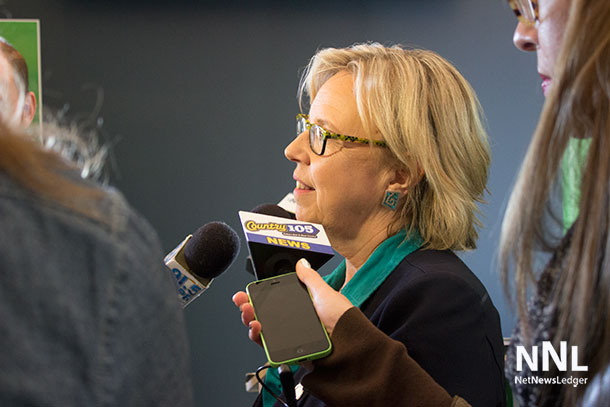ANTIGONISH, N.S. – MINING OPINION – It’s often said that successful First Nations must operate at the speed of business, not the speed of government. That certainly applies to First Nations affected by the Ring of Fire mining proposal.
Long delays and lack of communication between governments and the nine First Nation communities involved have plagued efforts to establish mining of largely chromite deposits in the region 500 km north of Thunder Bay.
A central bone of contention is the construction of an all-season transportation corridor to get the mined ore to plants in northern Ontario where it can be refined. In late May, Ontario Premier Kathleen Wynne told a Chamber of Commerce meeting in northeastern Ontario that movement on an infrastructure plan should come in “weeks, not months.”
But even if the necessary infrastructure gets built, development of the region’s minerals is not a given, as uncertainty from aboriginal consultations continues to discourage investment.
For example, in 2013, mining company Cliffs Natural Resources, after spending millions on negotiations, pulled out as a major claims holder in the region when First Nations negotiations failed to show meaningful progress. Noront Resources, the company that purchased Cliffs’ mining claims, has said negotiations have stalled, making the goal of shovels in the ground by 2018 increasingly unlikely.
Consultation with the region’s First Nations needs to happen. Indeed, Ontario’s Mining Act requires aboriginal consultation. But recent research has found that Ontario’s consultation framework lacks clarity, as it remains in the draft stage and has yet to be finalized. This creates uncertainty for investors – and uncertainty is the antitheses of investment. In fact, the Fraser Institute has documented how uncertainty surrounding First Nation land claims acts as a deterrent to mineral exploration and investment.
While the blame for legislation that creates uncertainty rests with the government, indigenous communities are not blameless passive actors in this process. They must be realistic in their demands and carry out negotiations in good faith. In the past, some of these communities blockaded access to mining sites.
The draft consultation states that the aboriginal community should not frustrate good-faith efforts to consult, or make unreasonable attempts to prevent the government from making decisions or prevent the project from proceeding.
But some argue that First Nations should essentially have a veto over resource projects. In 2015, Bob Rae, the negotiator for the nine Matawa First Nations involved, told the CBC that governments cannot proceed without the consent of the First Nations and that it’s long past the point where governments can move ahead with development without the full support of First Nations.
The duty to consult and accommodate indigenous communities, as interpreted in court rulings and within political frameworks, envisions these communities as intimately involved and informed parties in the process. But it stops short of saying they have veto over any development or government decision.
As the draft Ontario policy states, accommodation involves a process of balancing of interests. A right of veto would create a huge power imbalance favouring indigenous demands.
For the Ring of Fire to reach its full development potential, non-aboriginal governments and companies should engage with aboriginal communities fully and properly.
However, those same communities must realize this is about balancing interests, not veto power. They must be realistic and engage in good faith – just like the companies and governments – and not squander this huge opportunity.
Joseph Quesnel is a senior fellow at the Fraser Institute. Kenneth Green is Senior Director, Natural Resource Studies at the Fraser Institute.
© 2017 Distributed by Troy Media
The views, opinions and positions expressed by all columnists and contributors are the author’s alone. They do not inherently or expressly reflect the views, opinions and/or positions of NetNewsLedger.








